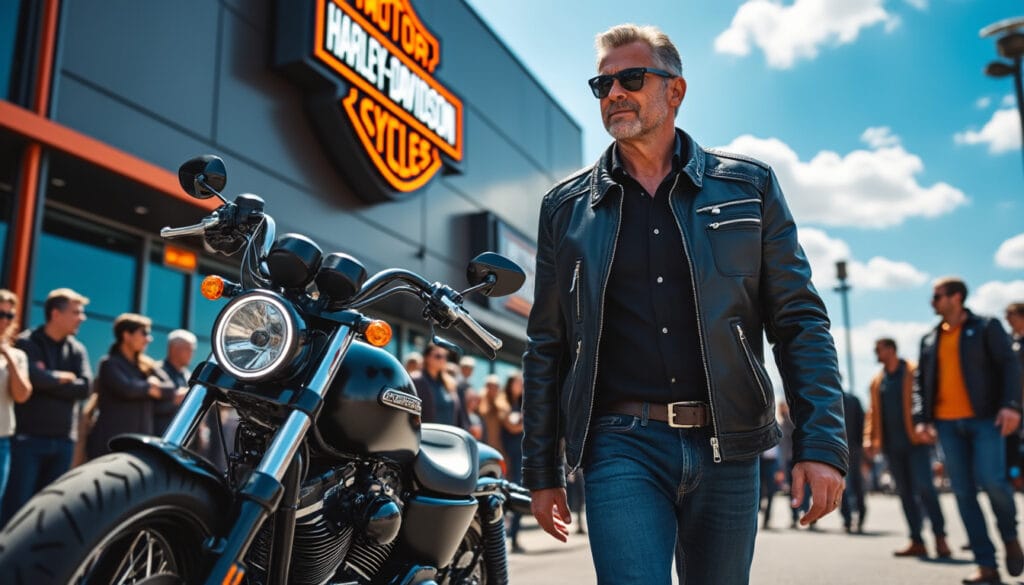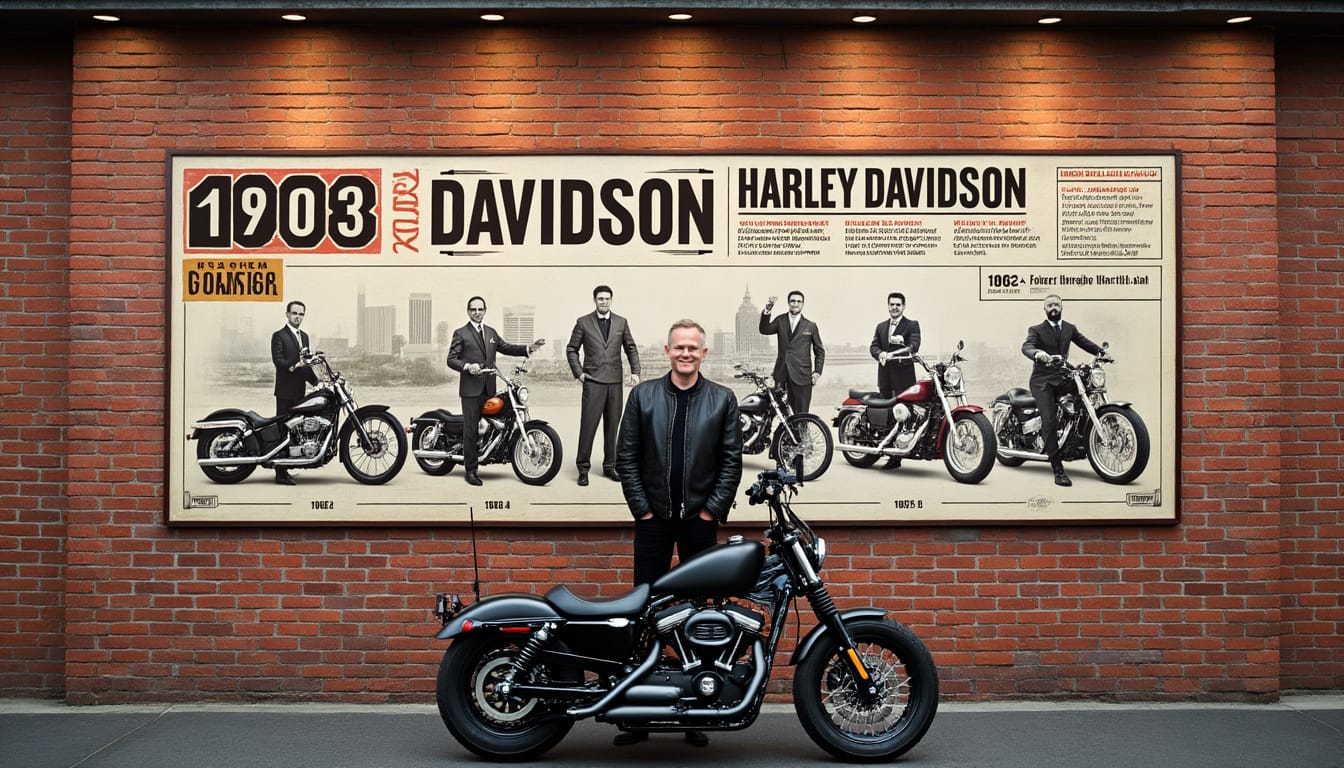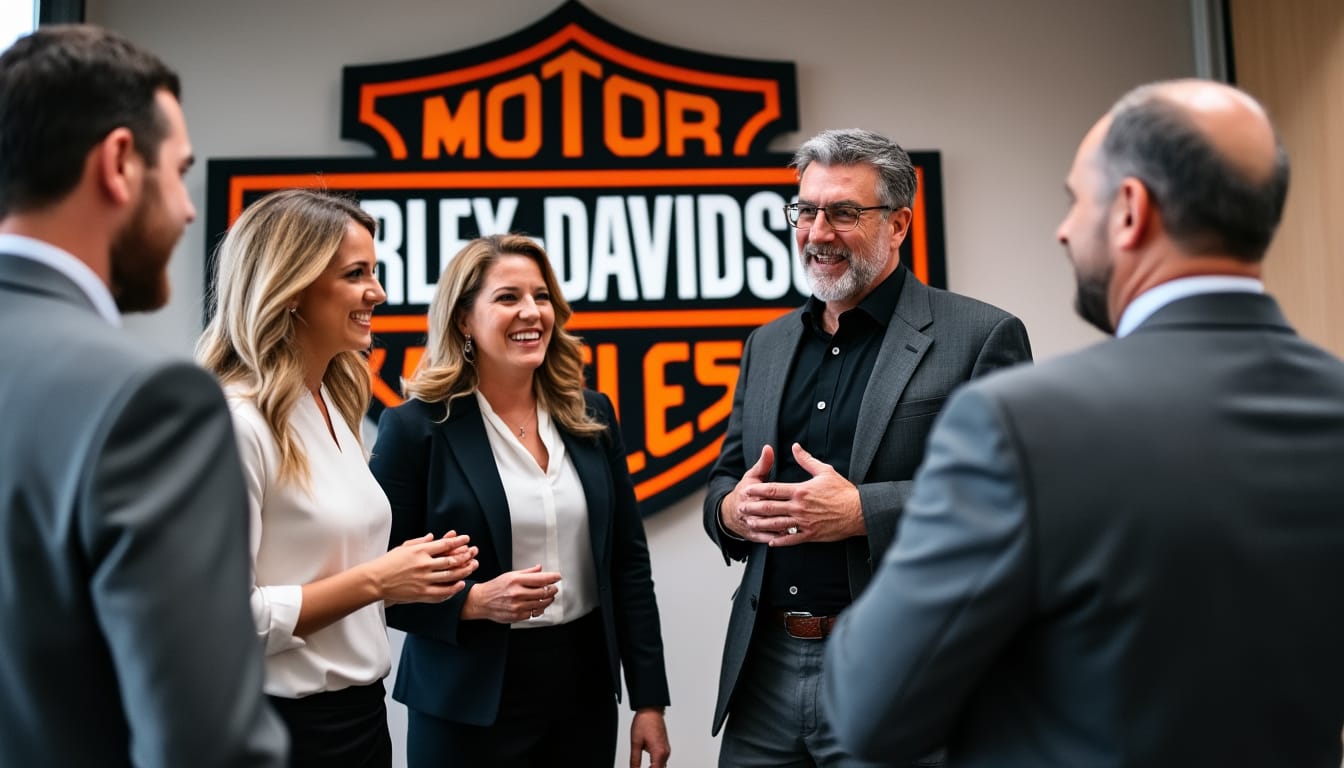The imminent departure of the CEO of Harley-Davidson

The announced departure of Jochen Zeitz, CEO of Harley-Davidson, is causing waves in the motorcycle industry. As the iconic Milwaukee brand faces a challenging economic environment, the search for a new leader is crucial for its future. This change in leadership could redefine the strategic directions of the company, at a time when challenges abound: declining sales, regulatory issues, and trade tensions. Let us analyze together the implications of this transition for Harley-Davidson and its impact on the motorbike market.
Context and Evolution of Leadership at Harley-Davidson
Jochen Zeitz, at the helm of Harley-Davidson since 2020, has implemented significant changes within the Motor Company. His arrival as CEO came during a tumultuous period, following the dismissal of Matthew Levatich. Zeitz, initially appointed on an interim basis, quickly took the reins of the company, halting the "More Roads" plan aimed at expanding the brand into new market segments.
In its place, he introduced the "The Rewire" strategy, focused on returning to the brand's fundamentals. Through his plan, the company re-evaluated its entire range of motorcycles and experienced a certain revival with flagship models like the Pan America trail and the new Sportster. These innovations have allowed Harley-Davidson to reposition itself in the market, although challenges remain in attracting a younger clientele, a crucial point for the brand's future.
The imminent departure of Zeitz, scheduled for 2025, raises many questions. Investors and analysts are anticipating how this transition will affect the company's performance in an increasingly competitive motorcycle market. Indeed, brands like Indian Motorcycle, Ducati, KTM, Yamaha, and Honda are fiercely competing to capture market share.

The Challenges of the Motorcycle Market in 2025
The motorcycle market is undergoing rapid change, facing shifting regulations and increasing competition from new brands manufacturing electric motorcycles. The global context, with renewed trade tensions between the European Union and the United States, adds an additional layer of uncertainty. Harley-Davidson has already been penalized by tariffs, complicating the situation for a company seeking to restore its position in the global market.
- Regulatory Evolution: New regulations, particularly in Europe, set stricter emissions standards that compel manufacturers to integrate cleaner technologies.
- Increased Competition: Brands, including BMW Motorrad, Triumph, and Suzuki, are developing innovative models that meet the new expectations of consumers.
- Transition to Electric: The need to diversify into the electric motorcycle sector is more crucial than ever.
This complex landscape raises questions about the strategy that the future CEO of Harley-Davidson will need to adopt. As the search for the ideal candidate intensifies, the board of directors must consider not only management skills but also the long-term vision of the company in a transforming sector.
Performance Analysis under Jochen Zeitz's Leadership
The five years of Jochen Zeitz at the head of Harley-Davidson have been marked by highs and lows. In 2021, the company recorded a total of approximately 194,256 registrations, a notable performance after several difficult years. However, in 2022, sales fell to 151,229 units, a direct reflection of the economic tensions and difficulties faced in the auto and motorcycle sector. This downward trend is concerning, especially as the brand faces colossal competitive challenges.
| Year | Registrations | Change from the Previous Year |
|---|---|---|
| 2021 | 194,256 | N/A |
| 2022 | 151,229 | -22.2% |
With declining figures, the new CEO will need to proactively address current challenges. Opportunities for transformation toward electric, strengthening the brand's culture among younger consumers, and adapting to new environmental expectations will be crucial for the future of Harley-Davidson.
The Succession Process at Harley-Davidson
The board of directors at Harley-Davidson has already begun the process of searching for a new CEO. This process, which they stated would start in the fourth quarter of 2024, is vital for the future of the company. It is not only about finding a successor to Jochen Zeitz but also about defining a clear and ambitious vision for the company in the coming years.
The selection framework will involve several key steps:
- Candidate Identification: The board must establish an ideal candidate profile based on the strategic needs of the company.
- Targeted Interviews: Selected candidates will undergo several rounds of interviews with different board members.
- Stakeholder Consultation: Company executives as well as shareholders will need to be consulted to choose a leader who meets their expectations.
The choice of the future CEO will influence not only the direction of Harley-Davidson but also how the brand will be perceived in an already saturated market. The new executive will have the responsibility to innovate while retaining a loyal customer base that loves the mythology around the brand.
Strategic Options for the Future Leader
The future CEO of the Motor Company will need to consider various strategic axes to ensure a smooth transition and lasting commitment to the brand. Among these axes, it may be relevant to:
- Invest in Electric Technology: Actively promote electric models and collaborate with start-ups specializing in innovation. Brands like Victory Motorcycles have already taken cautious steps in this area.
- Target Young Generations: Develop marketing campaigns tailored to attract young consumers, who are often drawn to brands like Ducati and Triumph.
- Focus on Customer Service: Provide exceptional customer service to retain an existing customer base while utilizing digital technologies.
The future leader will also have the delicate task of re-establishing Harley-Davidson's image as an iconic brand while taking into account the expectations of the new generation of riders. An ambitious challenge that will require a taste for innovation and a willingness to change.

Impact on the Motorcycle Industry and Market Trends
The retirement of Jochen Zeitz from the helm of Harley-Davidson is not only an internal event for the company but also raises broader questions about the future of the motorcycle industry. Due to economic and social upheavals, industry players must think in terms of transformation and resilience.
During his tenure, part of Zeitz's strategy was to withdraw from certain market segments, such as the LiveWire electric division. This indicates an awareness that focusing on traditional development can sometimes be beneficial, despite the growing pressure to embrace green technology. In other words, the industry must navigate between tradition and modernity, and the future CEO will play a key role in defining this paradigm.
Focus on Emerging Trends
Various emerging trends in the motorcycle sector suggest directions that Harley-Davidson could take under its future CEO:
- Growing Popularity of Electric Motorcycles: Renewed consumer interest in low environmental impact models. This trend could represent an opportunity to relaunch product lines.
- Increase in Young Riders: A growing need to attract Millennials and Generation Z through connected design motifs and an exceptional experience.
- Ecological Sensitivity: Increased awareness of environmental issues requires manufacturers to meet stricter sustainability standards.
The future success of Harley-Davidson will depend on its ability to stay informed and adapt to these trends. The future CEO must, therefore, be attentive, customer-oriented, and aware of market dynamics to keep Harley-Davidson at the forefront.
Strategic Challenges Ahead for Harley-Davidson
Looking ahead to the future of Harley-Davidson, it is imperative to consider the strategic challenges that will define the brand in the coming years. The departure of Jochen Zeitz could also mark a historic turning point, both for the brand and for the motorcycle market. In essence, three main challenges emerge:
- Renewal of Innovation: The need to innovate and differentiate in the face of competitors who do not relent their pressure.
- Distribution Policy: The study and improvement of distribution channels, to ensure that products effectively reach the target audience.
- One Harley, One Family: The continued pursuit of a sense of community around the brand, cultivating a spirit of family and customer loyalty.
The future CEO of Harley-Davidson will need not only to formulate a solid strategic action plan but also to effectively communicate this vision within the organization and to customers. Ultimately, Harley-Davidson's ability to navigate unstable markets will largely depend on the prudence and agility of its next leader.
Source: www.lerepairedesmotards.com
Leave a Reply



Articles relatifs